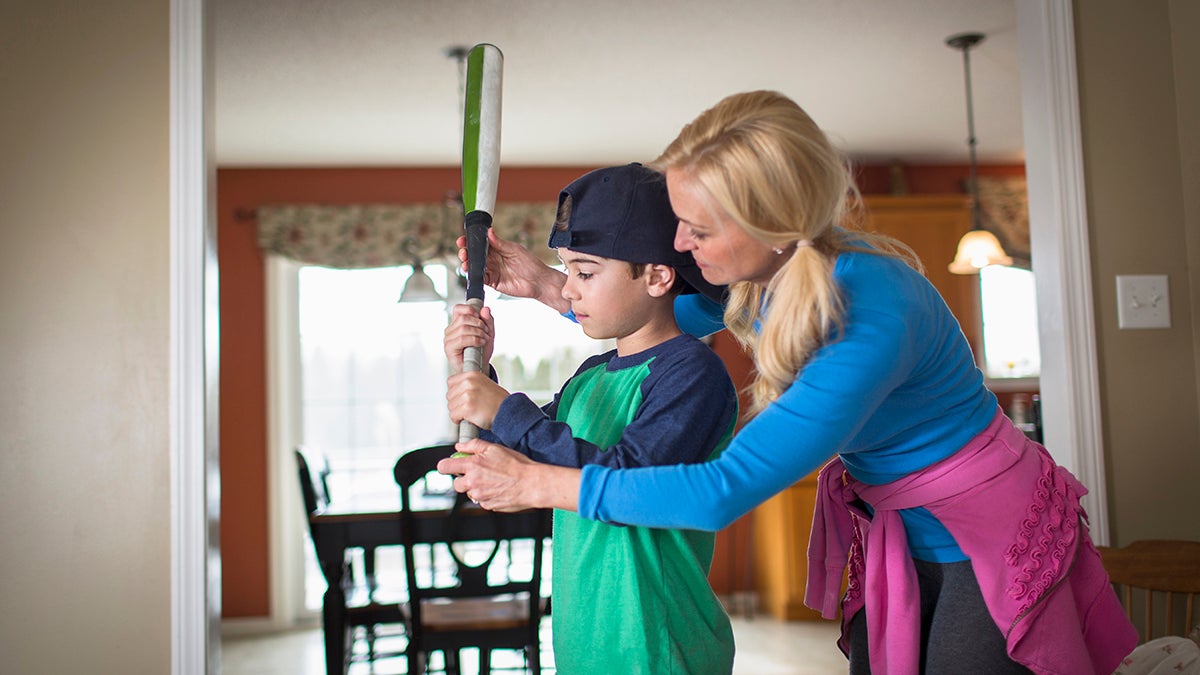Young athletes want parental support - to a point

Do youth sport participants want their parents to be involved in the game?

A recent study published in the Sport, Education and Society Journal attempted to answer that question using a survey of 16 interviews with 47 Norwegian teenagers. Researchers Åse Strandbu, Kari Stefansen, Ingrid Smette and Morten Renslo Sandvik found these young athletes desire the support of their parents in competition but also seek to use sport as a means of “negotiating the limits of their own agency.”
In general, respondents viewed their parents’ desire for them to play sport through the lens of staying in physical shape and staying busy. Very few, according to the study, described their parents’ beliefs as having to do with the actual technical skill required to compete in sport. Therefore, researchers concluded “young people recognise both that parents know what is best for them and that they share those assessments.”
Athletes surveyed also said they enjoyed the encouragement from their parents when it came to deciding whether to continue playing throughout their lives. Students also enjoyed help from their parents helping them navigate between sport and schoolwork, the study showed. Altogether, many of the key inflection points in the life of a young athlete tend to include parents, and the 47 young people interviewed appreciated the helping hands of their parents’ in shaping their values and beliefs in sport and in life.
Researchers called parents’ aggressive involvement in their children’s sport participation “the most concrete aspect of the negotiation of autonomy.” Most of those surveyed agreed their parents were “extensively involved in their sporting activities.”
This quickly turns into a conversation about parents who also coach their kids. Respondents wanted separation from their parents in these cases, particularly the ability to converse and vent to teammates apart from their mother or father. However, those whose parents coached also claimed to enjoy the advantage of having someone in their family helping to develop their sport skills.
“The reason is that what parents want and what kids tell us they want are very different,” George Washington University sports management professor Mark Hyman told GlobalSport Matters last year. “Parents enjoy competition and winning and something that looks like what they see on TV when they watch professional and college sports. And kids, when we ask them what they want, they want to have fun, they want to be with their friends, they want to learn new skills. So it’s a very different wish list for kids.”
This new Sport, Education and Society study doesn’t necessarily contrast Hyman’s findings, but rather provides a new perspective on the psychological effects of sport participation for both kids and parents. Hyman also coached his son, making his thoughts an interesting vantage point from which to think about these findings.
Another interesting consideration at play in these new findings is how youth sport function in Norway. In 2011, approximately 60 percent of young Norwegians took part in sport. Most coaches are parents, and club or privatized leagues are less prevalent, as the government funds most of the sport in the country. Parents in Norway were found to be increasingly involved with their children’s athletics by buying equipment and giving advice. A 2016 analysis found a standard form of involvement among Norwegian parents that greatly exceeded their own parents’ level of involvement when they participated in sport while growing up. This uptick in parent involvement makes Norway a particularly interesting case study.
The picture the study paints of parents’ involvement in Norwegian youth sport is not dissimilar from parents’ heavy involvement in America. It would be reasonable to extrapolate the findings to the United States and think about how these relationships can be more functional.
For a variety of reasons, youth sport participation is trending downward. Creating a stronger foundation from within what those within the industry call the “athletic triangle” — coaches, parents and players — could be a key to avoiding problems such as athletic burnout and make children more self-driven to excel in sport.
Brendon Kleen is a senior journalism student at Arizona State University
Related Articles
Parents joining in on signing day sparks helicopter parent discussion

